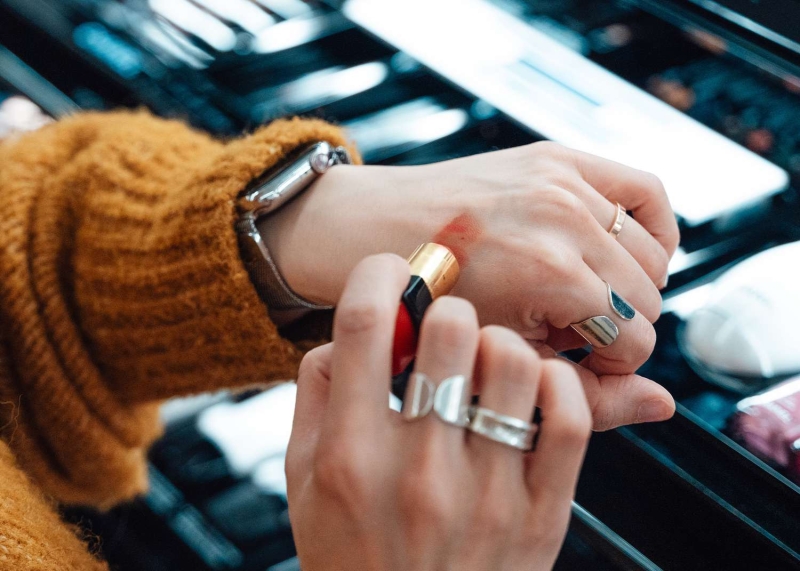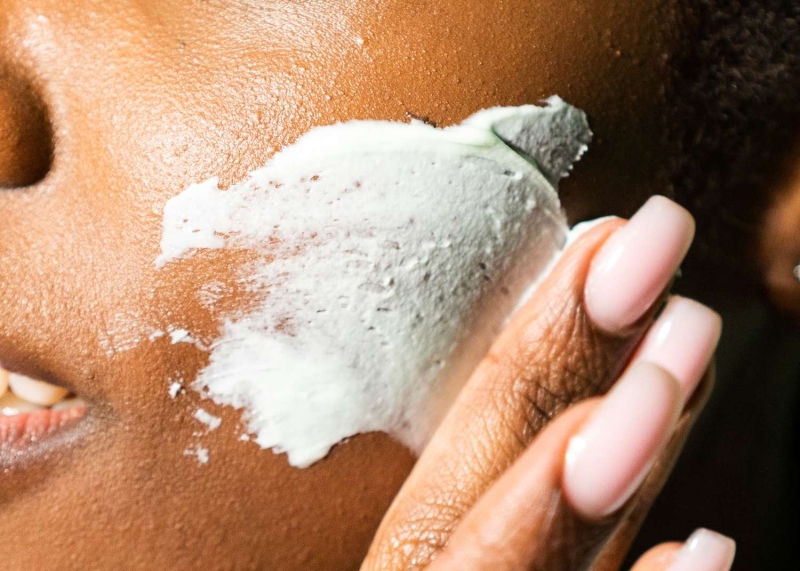Contents

There are a few beauty rules that are known far and wide: don’t go to bed with a full face of makeup, don’t wash freshly dyed hair in hot water, and whatever you do, don’t use products riddled with parabens (or so they say). While the first two are fairly obvious (makeup left on overnight can clog pores and hot water can fade color), the topic of parabens is often up for debate.
Meet the expert
- Charlene Valledor is the co-founder and president of brand incubator SOS Beauty.
- Ron Robinson is a cosmetic chemist and the founder of skin-care brand BeautyStat.
As you might have guessed, parabens are a category of cosmetic ingredients that can be found in makeup, haircare, and skincare products—but that’s not all. “Parabens are a classification of chemicals commonly used as preservatives in foods, pharmaceuticals, cosmetics, and personal care products,” says SOS Beauty co-founder and president Charlene Valledor, who has a background in cosmetic chemistry, formulation, and product development.
According to cosmetic chemist and BeautyStat founder Ron Robinson, preservatives prevent the growth of harmful bacteria, yeast and mold in the products they’re infused into, whether it’s a jar of moisturizer, a bottle of shampoo, or a tube of mascara. (Though, they can also be found in soft drinks, beer, syrups, and other edible products.)
“Parabens are used in the making of many types of cosmetic and personal care products, such as lotions, deodorants, shampoos, lipsticks, mascaras, and toothpaste,” Valledor says. “They prevent the growth of microorganisms such as bacteria, mold, and yeast, and therefore help to keep the product safe to use over time.”
Why Parabens Get a Bad Rap

Like so many things, the detriment of parabens depends on who you ask. On one hand, over the past decade, there have been studies on mice and in Petri dishes that suggest chronic exposure to parabens can lead to hormone disruption and the development of breast cancer. The start of fear-mongering around parabens can be linked to one 2004 study that linked parabens to breast cancer. However, the study quickly discredited for having such a small sample size (20 people) and lacking a control group of breast-cancer-free women.
The most well-researched reason to avoid parabens has to do with skin allergies. Valledor points out that there have been studies that indicate parabens can exacerbate sensitive skin and cause new allergies. Much like with fragrance, parabens are only bad for you if you’re allergic to them.
Consumer concern has led many beauty and personal care brands to nix parabens from their ingredient rosters, opting for cleaner preservative alternatives, Robinson says.
Whether or not that’s truly necessary is to be determined. As Valledor reveals, parabens aren’t all bad. Some are naturally occurring. “Parabens are synthetically created for use in commercial products, but they are also found in our environment, and are also naturally created in nature by plants and microbes,” she explains. “Plants such as blueberries, carrots, olives, strawberries, and others produce parabens (mainly methylparaben) for its presumed antimicrobial activity.”
All in all, there is concern swirling around parabens but there has also been an emergence of research and brand reconfiguration to address those worries. That said, it’s up to you which paraben perspective you want to take. “If you are concerned about the potential effects of increased exposure to parabens, it’s best to limit the use and intake of products and foods that contain parabens,” Valledor concludes.
How to Avoid Parabens in Beauty Products
Think you want to take the less is more approach? The best way to avoid parabens in beauty products is to keep an eye out for the chemicals on your ingredient labels. “If parabens are in a formula, they are easily identified in the ingredient listing because they contain the word ‘-paraben,’” says Valledor, Think: methylparaben, propylparaben, ethylparaben, and butylparaben.
If reading through lengthy lists of long, hard-to-pronounce words feels overwhelming, don’t fret! Many brands clearly identify the "paraben-free" or "free of parabens" badge, and retailers like Sephora and Ulta make it clear via clean beauty programs like Clean at Sephora and Conscious Beauty at Ulta Beauty.
What to Know About Paraben Alternatives
Now we know what you’re thinking: If I forego parabens, will my beauty products go rancid? Thankfully not. Nowadays, there are many paraben preservative alternatives out there, including sorbic acid, benzoic acid, and levulinic acid, Robinson says.
That said, research on those ingredients isn’t necessarily abundant. “There are many alternative preservatives that can be used in place of parabens, however, it cannot be said that they are categorically safer or better for you,” Valledor admits. “Preservatives have come under scrutiny in the recent past, causing consumer backlash (i.e. phenoxyethanol) and creating intense demand for so-called ‘clean’ or ‘natural’ preservatives, such as potassium sorbate, grapefruit extract, rosemary extract, and sodium benzoate. However, using any preservative, especially ones that do not have as much use data and history behind them, can come with their own risks.” One example? A failure to adequately prevent microbial growth, she warns.
Because of this, Valledor says that, while you should always be mindful of beauty expiration dates, you should be especially so when working with paraben-free formulas. “Be aware of any changes in color, odor, or appearance in a formula,” she adds. “It’s better to be safe and toss anything that is questionable.”

